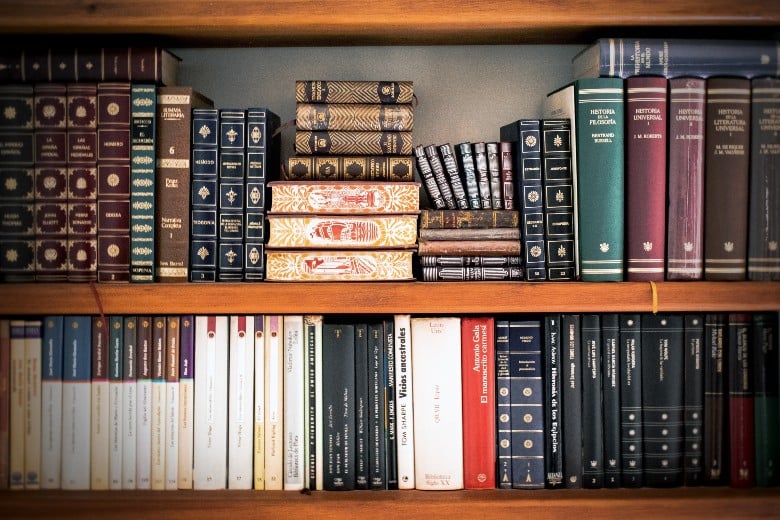
Back when my oldest child was in middle school, she wanted to read “The Hunger Games.” The movie was about to be released, and it was all the buzz in pop culture. My daughter wanted to read the book, then see the movie. As an English teacher, I appreciated that she wanted to read the book first. However, neither her dad nor I had read the book, and we weren’t sure whether the book’s premise was appropriate for a middle schooler. Although, as we talked about it more, the idea of teenagers battling it out in a fight to survive seemed very applicable to middle school.
So her dad and I decided she could read it, but he would also read it. This way, he could discuss it with her. Then, when the movie came to our local theater, he took her to watch it. He’d done a similar thing when she was younger and so many of our conservative friends were riled up about Harry Potter. He read those books with her, then they watched the movies together. They’d read a book, discuss it, watch the movie, then discuss it.
This just made so much more sense to us than forbidding a book.
First, her classmates were talking about it. This meant she was hearing about the book through the lens of other middle schoolers. Wouldn’t it be better for her to read and discuss the book with us so that we could help guide the conversation?
Next, forbidding books often provokes kids to be sneaky. I distinctly remember when some of my elementary friends were sneaking to read “Are You There God? It’s Me, Margaret.” Even as a fifth grader, I thought it was silly that their parents would rather have them sneak to read it alone than have conversations about the book together.
Still, disallowing a book for your own child is one thing. Attempting to prevent everyone else’s children from reading the book is a whole other situation.
Not once did I ever consider asking the school and our local library to remove “The Hunger Games” from the shelves so that no other children could read it and talk about it in front of my daughter.
The World Doesn’t Revolve Around Me Or My Child
No, that would be counterproductive to much of my parenting. I have spent a lot of parenting hours explaining to each of my six children that the world doesn’t revolve around them. Right? That’s how we raise decent humans who are considerate of others.
That’s why this recent book banning movement has seemed so absurd to me. Do these conservative Christian parents believe the world revolves around them and their children and their preferences? Do they really think they have the right to tell other parents’ children what they may or may not read?
It’s ludicrous!
The Bible Teaches Me To Honor And Esteem Others
More than that, it’s antithetical to much of what the Bible actually teaches.
For much of my life, I remember hearing the admonition to honor others above myself. To be humble and and value others above myself. Over and over, the New Testament writers encourage Jesus’ followers to be humble, to be kind, to esteem others, to consider others. Furthermore, Jesus himself emphasized the Golden Rule of treating others the way we want to be treated.
If people who practiced another religion gained power, would I want them to ban all books with Christian themes? No? Then I could not, in good conscience, attempt to ban books with themes or ideas I don’t like or agree with.
Besides, the Bible itself contains many stories with explicit violence, graphic sex scenes, and questionable morality. Which is why one school district in Utah ended up banning the Bible from elementary and middle schools earlier this year. After conservative parents succeeded in banning other books from school shelves, a parent submitted a complaint about the Bible, comparing some scenes in the Bible to the “sensitive material” in the other books the school board had recently banned.
Touché. What’s good for the goose . . .
As a parent, I cannot teach my children to consider and esteem others, then demand that my entire community revolve around my parenting preferences. I cannot teach my children the Golden Rule, then insist our school library stock only the books I like, ignoring the beliefs and desires of my neighbors.
Book Banning Teaches The Wrong Lessons
Perhaps this will sound unkind, but it seems to me that protesting and demanding book bans is lazy parenting. It requires more work to read a book alongside your child, then have a conversation about the book. It requires time and energy and critical thought. It’s harder work to be sure. However, the dividends are greater. It builds relationship with your child, showing them they are worth your effort and – as a bonus- teaching them the skill of critical thinking.
It also demonstrates for your child that the world doesn’t revolve around your family. Other families believe differently. Other families make different choices. Not everyone must conform to your beliefs and preferences.
Banning books models self-centeredness and egocentric behavior to our children. These are the very adolescent natural behaviors we try to teachable-moment our children away from!
Libraries should reflect the diversity of our communities and country. School reading lists should similarly reflect such diversity. Further, if we get through 12 years of public school without reading something we disagree with, then we have received a very pitiful education.












